PostTime:7/30/2019
The Plenary Sessions, which will last for several days, give young people who have scientific ideals the opportunity to listen to the top scientists and ignite the passion to explore the unknown.
On the first day, the top scientists who share with the campers their Scientific insights and life experiences include Prof. Aaron Ciechanover (Israel), the Nobel Prize winner in Chemistry (2004) and foreign academician of the Chinese Academy of Sciences; Prof. Wang Quan (Canada), the member of the Canadian Academy of Engineering, Member of American Society of Mechanical Engineers; Prof. Vivian Wing-Wah Yam (Chinese Hong Kong), the L'Oréal-UNESCO Awards for Women in Science (2011) laureate and academician of the Chinese Academy of Sciences.
The revolution of personalized medicine: are we going to cure all diseases and at what price?
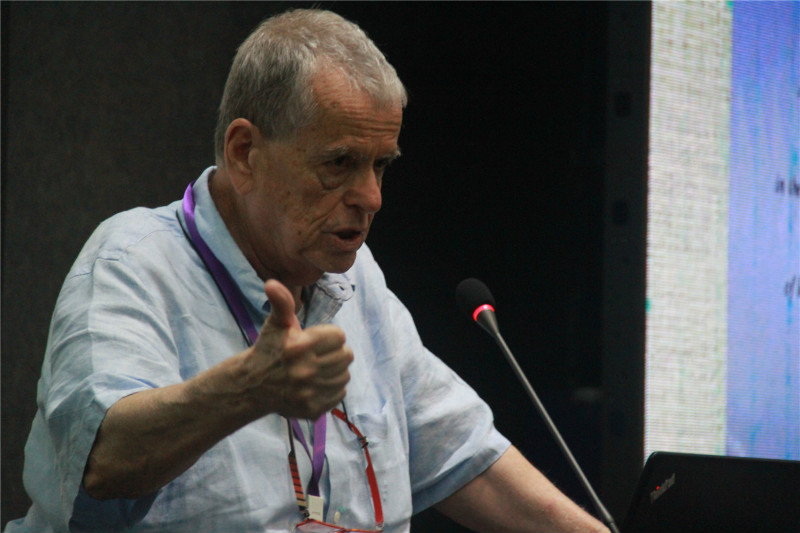
Prof. Ciechanover used data to prove that the average lifespan of human beings has extended by 30 years old in the last hundred years. The clinical innovation made it possible for continuous growth of age. He also pointed out that at present, some "classical" drugs were aimed at the disease, but failed to take into account the patient with its specific genetic repertories which have great influence on the course of the disease and its final outcome. Thus, modern medicine was going to be personal. By analyzing his/her DNA, RNA, proteins and metabolome, people can predict part of future diseases.

Energy harvesting from ocean waves by smart materials

Prof. Wang stressed the importance of applying the piezoelectric energy conversion technology (PECT) by analyzing the efficiency of present transmission and economic costs. Comparing with wind power technique which is popular in China, machines with PECT would require lower rated speed, which leaded to higher transmission efficiency. Prof. Wang suggested that we still need more intelligent design and techniques to be more efficient, cost-effective and adaptive by using piezoelectric technologies. Prof. Wang quoted an ancient Chinese water bucket called QiQi mentioned in Xunzi's book as an example of application of this technique. The container, once used to inspire people of "Humidity often gains more than pride", is now being used in a brand-new way in Prof. Wang's report.
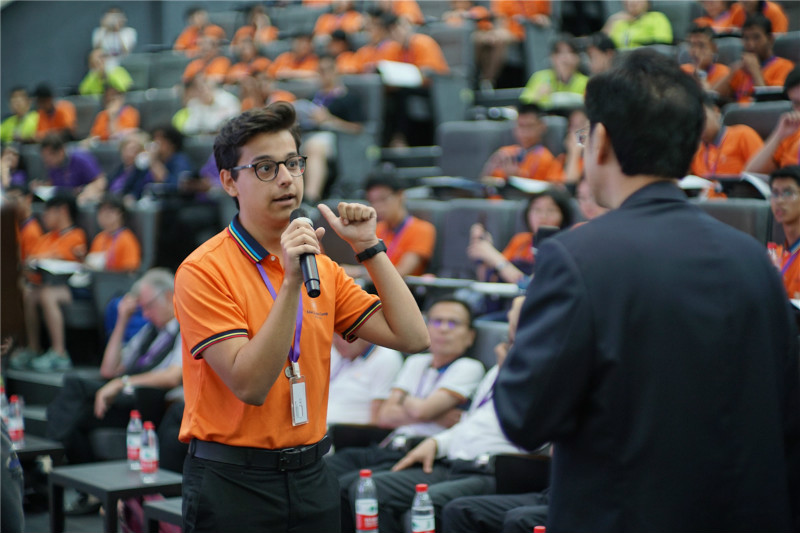
Molecular Functional Materials, from fundamentals to energy, materials and biomedical applications
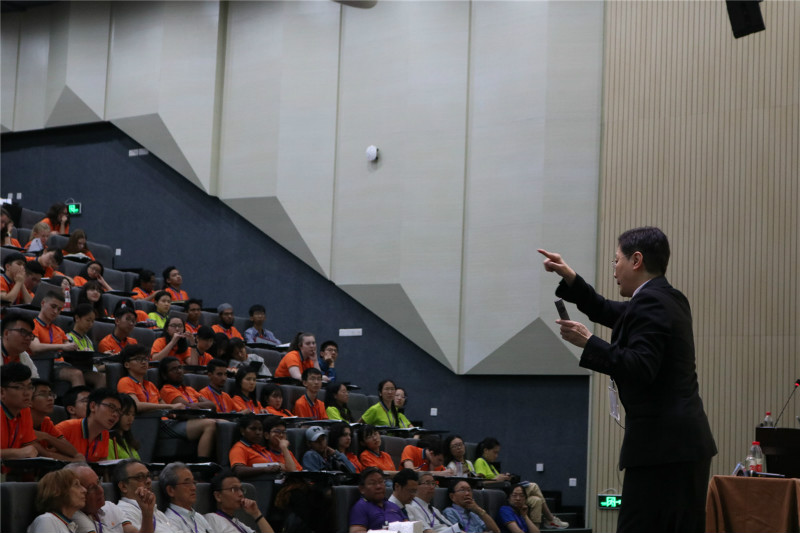
The topic of the lecture given by Vivian Wing-Wah YAM (Chinese Hong Kong) is "Molecular Functional Materials, from fundamentals to energy, materials and biomedical applications". She talked about the global demand for energy at the beginning, that human really need clean renewable green energy. Therefore solar energy is amongst one of the most attractive options. Otherwise, increasing energy efficiency is also significant, which led to immense interests in the research of molecular functional materials. The application field is broad to the encounters of daily life all the way from dyes and pigments to more advanced technological applications including imaging and data storage systems, display and solid-state lighting systems and so on.
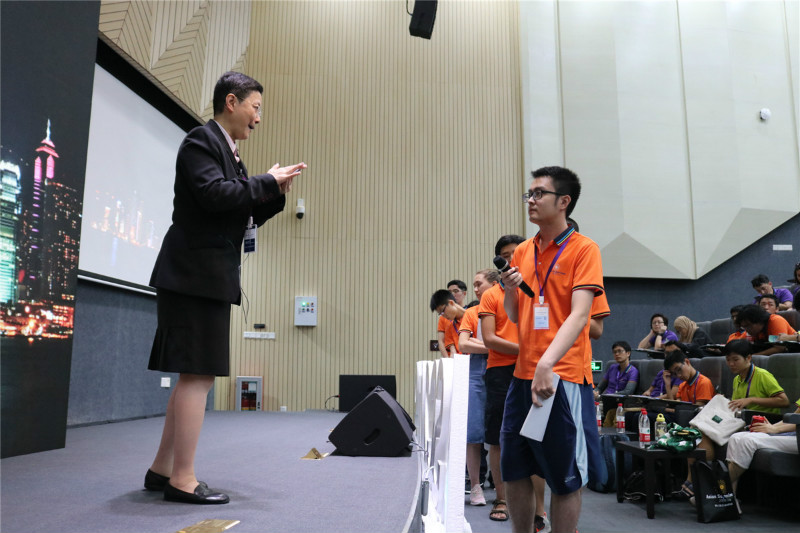
"The piezoelectric technology proposed by the professor is novel. It's more environmentally friendly and efficient than traditional methods."
-Youzexuan from Mainland China
"It is very impressive that we can feel the dedication of Chinese scientists to new energy from the report."
-Dana from Israel
"This lecture is a little difficult for me, but it was really interesting.
-Andrea from Indonesia
This is my first time to learn something which combine physics and chemistry in this way.It's amazing!
-Samantha Couper from New Zealand
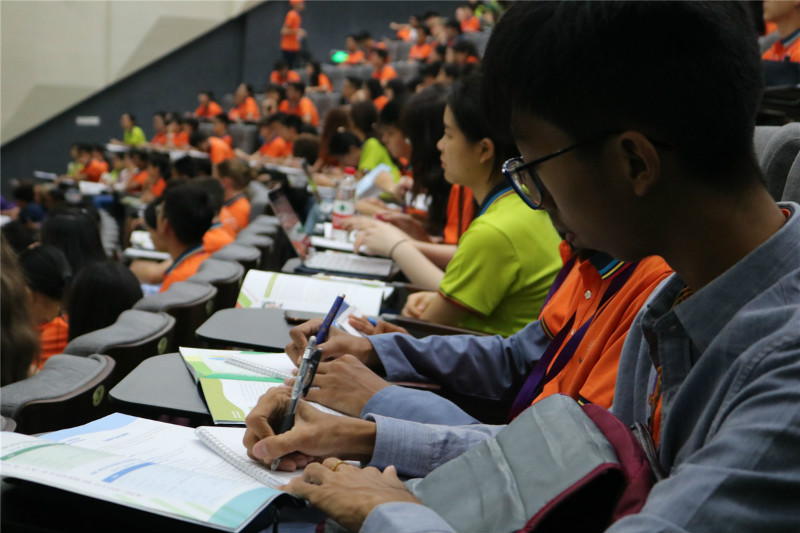
Text by ASC 2019 Media group (Quan Zhiyue, Zeng Jiayi, Liu Jing)
Photos by ASC 2019 Media group (Dai Yi, Zhang Zihan, Xu Yue)
Text edited by GTIIT News and Public Affairs, ASC 2019 Media group (Chen Yutian)
Photos edited by STU News Center
© GUANGDONG TECHNION-ISRAEL INSTITUTE OF TECHNOLOGY | 粤ICP备17036470号
